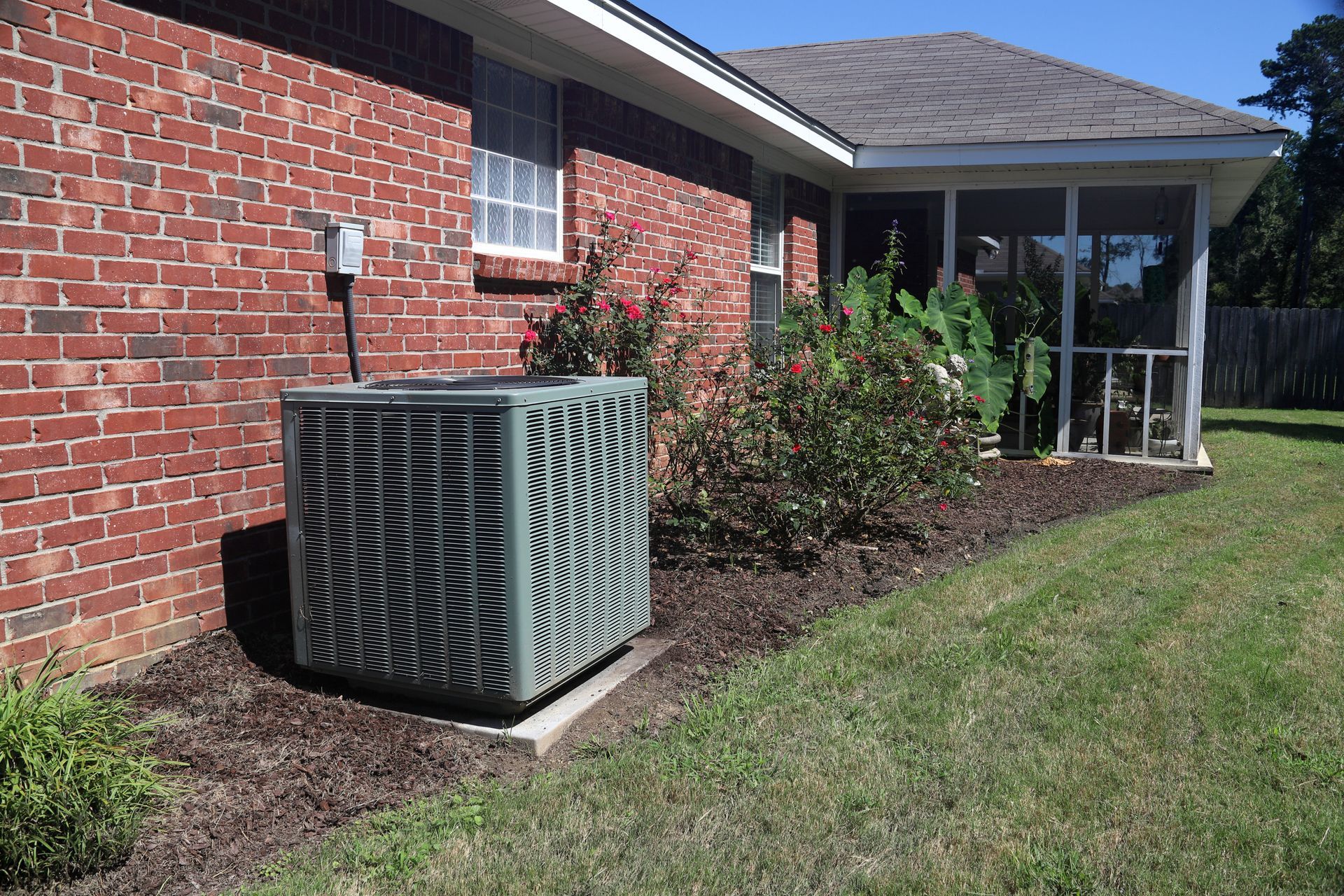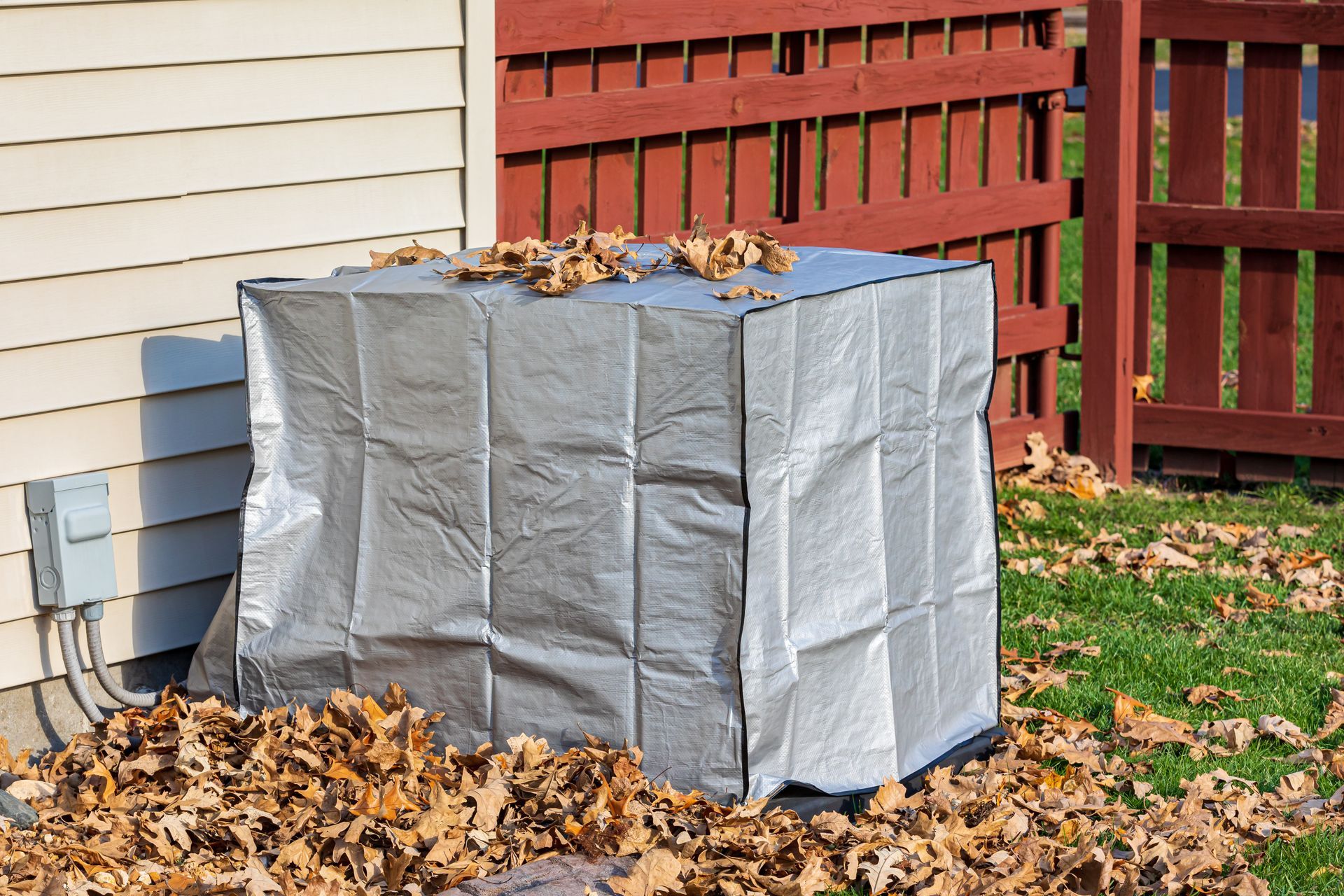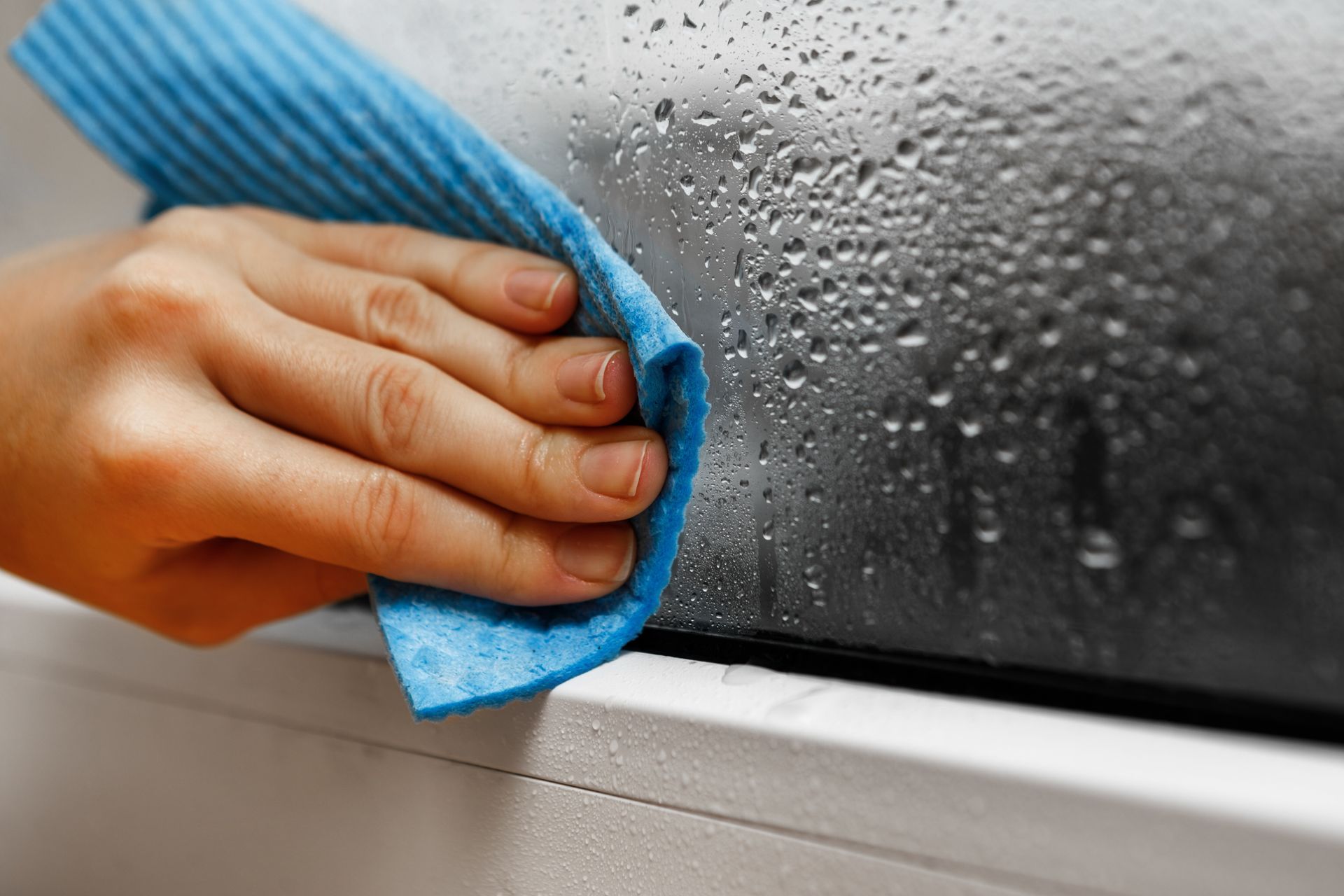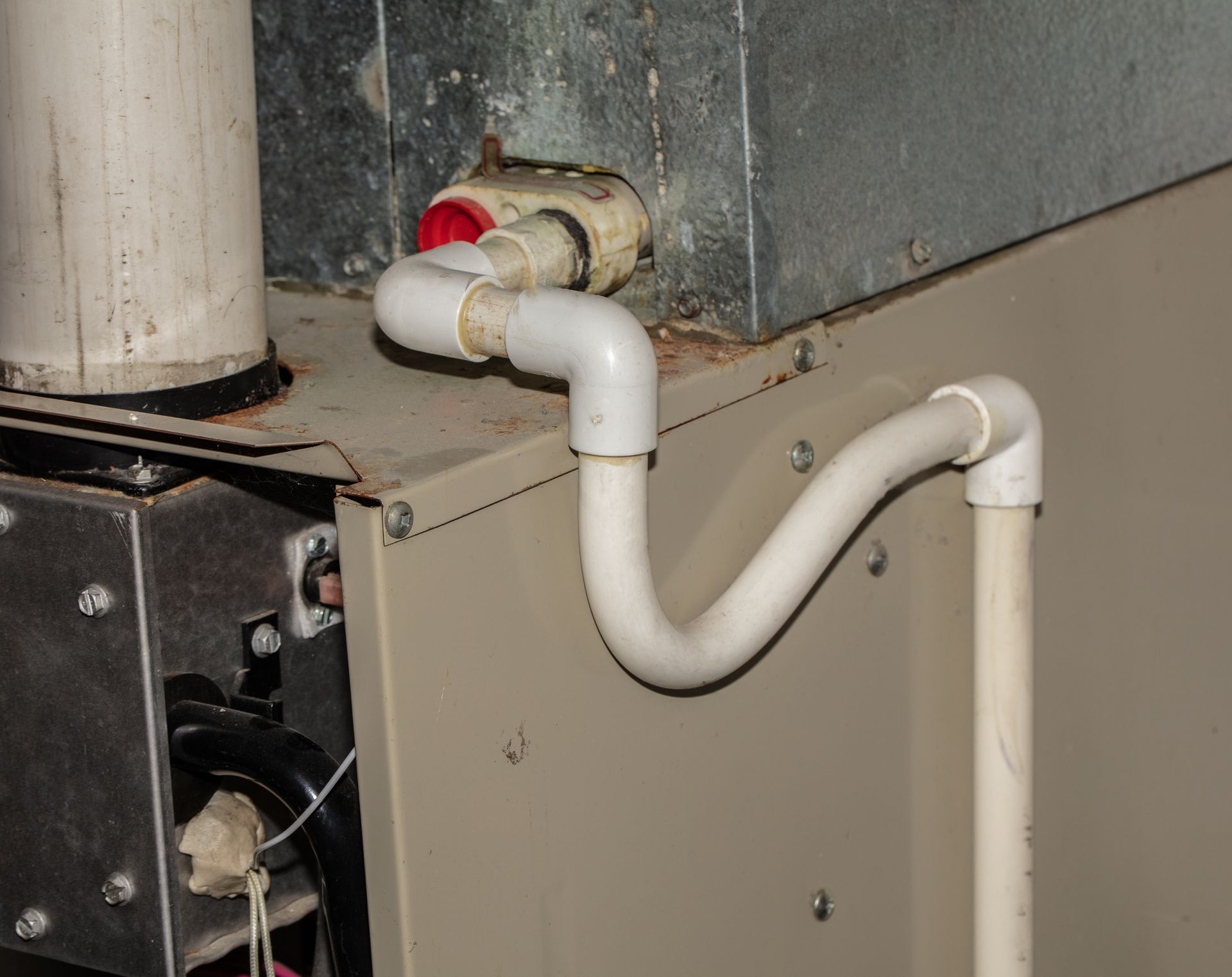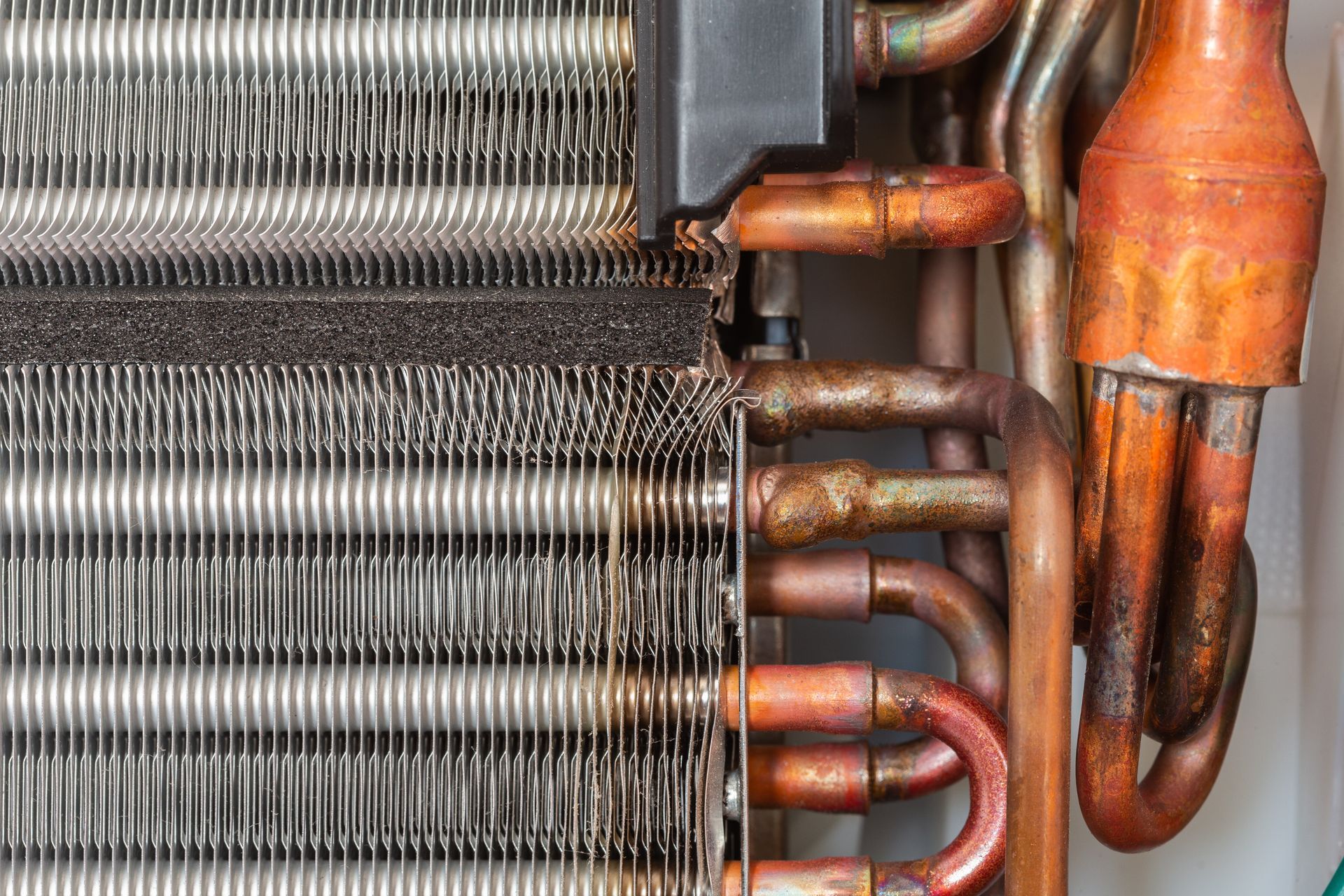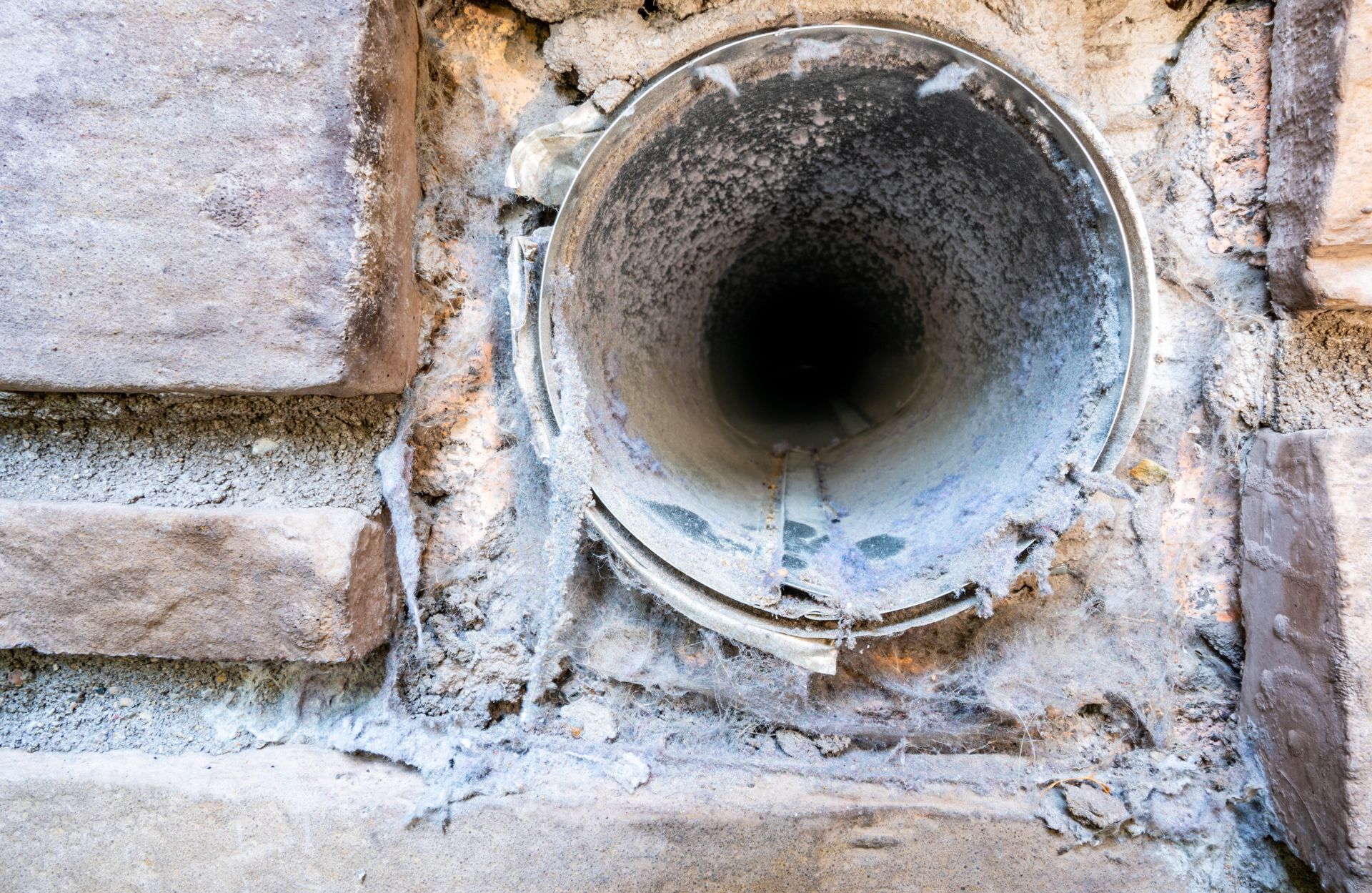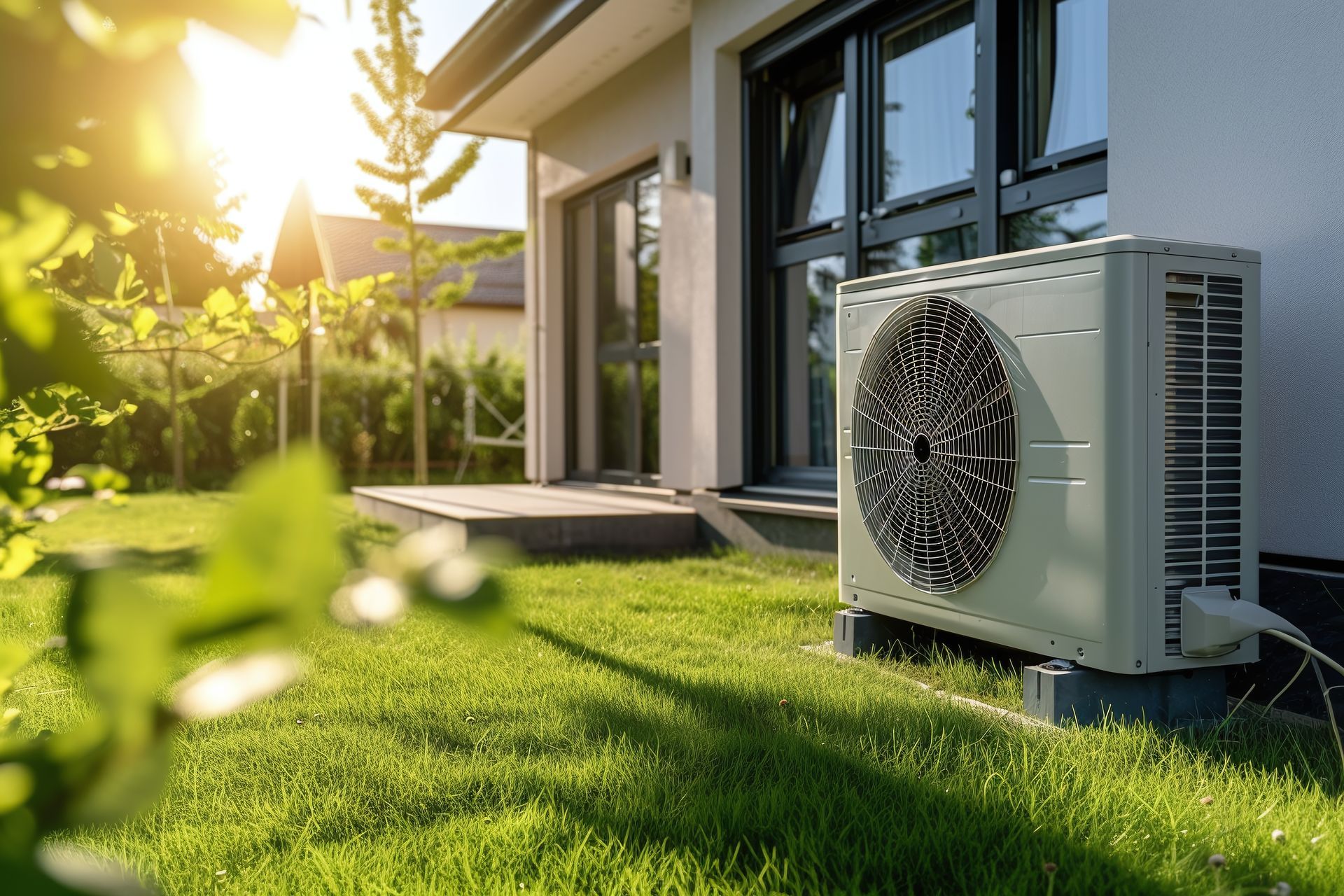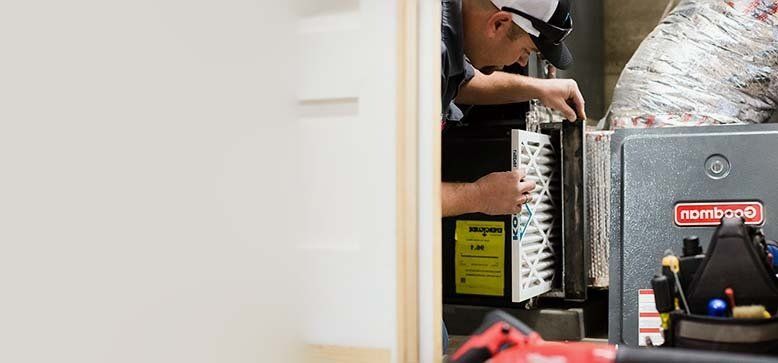Air Conditioner Noises
Common Air Conditioner Noises That Might Indicate a Problem
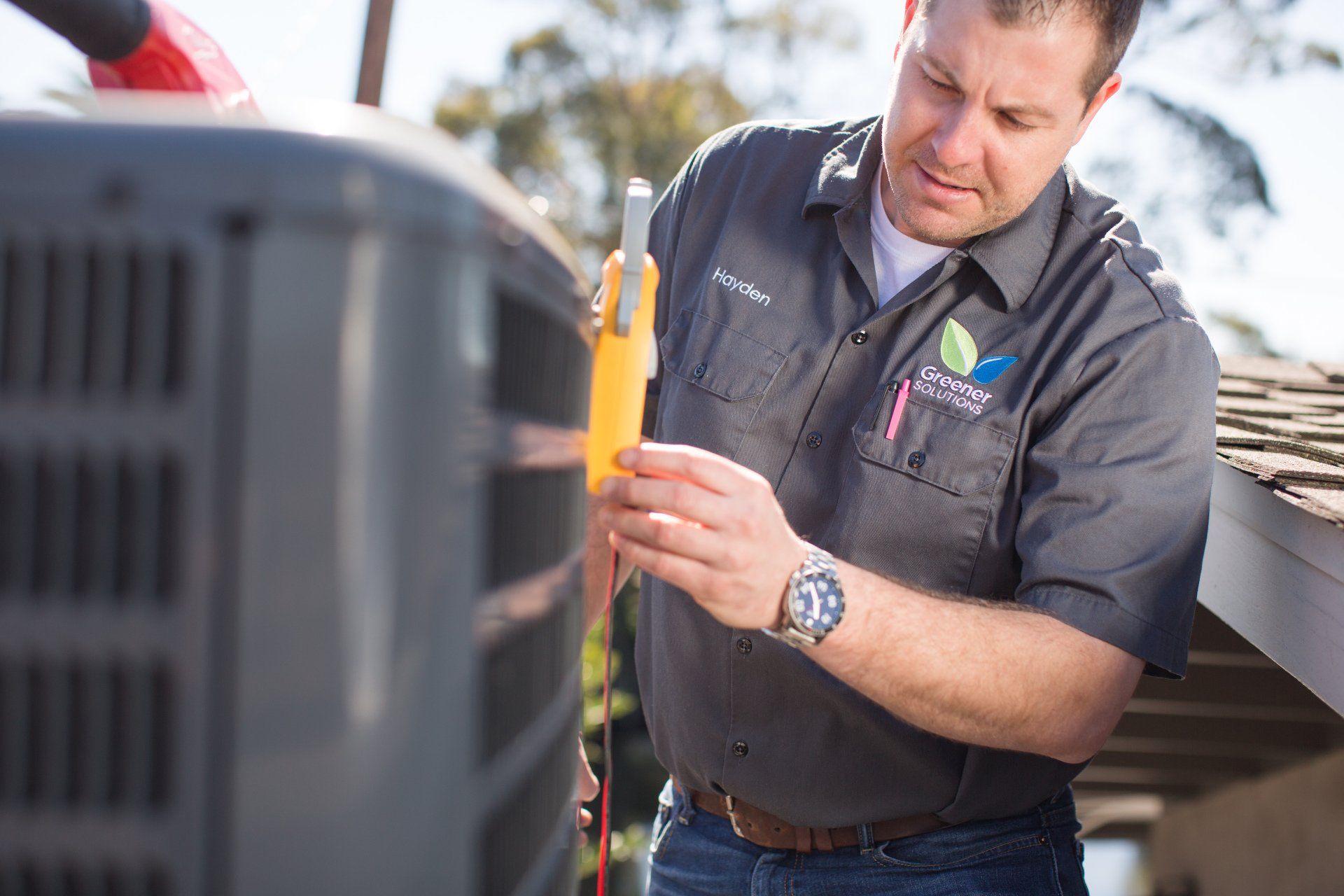
Modern efficient air conditioners are made with sound dampeners that are designed to keep your air conditioner operating within a reasonable noise level. A reasonable noise level for air conditioners is usually between 25 and 55 decibels, or between the equivalent of a whisper and normal conversation. Loud or unusual noises outside of that range are typically a good indicator that something within your AC unit is broken or breaking down. If you notice that your AC unit is making lots of noise, there may be a problem that needs to be fixed. To help diagnose your problem, the list below identifies the most common noises that an air conditioner makes and what could potentially be causing the problem.
Banging Noises
Banging noises are usually prompted by either by the compressor or blower fan motor. If the noise is coming from outside, it is likely the compressor. Banging noises outside are usually prompted by loose items within the compressor. These items can be broken parts like the piston pin or connector rod, or they can also be loose debris like sticks, dirt, and other particles. If your outside unit is placed in an environment where wind can blow debris into your AC, checking for loose debris would be the first step in trying to resolve banging noises. If the culprit of the banging noises is not due to debris, then a broken part inside the compressor may require that the compressor be replaced. If the banging noise is coming from inside, then it is most likely being prompted by the blower fan motor. This could indicate that the motor is now imbalanced or is starting to break down all together. Both elements potentially causing the banging noises should be inspected and fixed by a professional to eliminate the noise.
Clanking Noises
Clanking Noises are usually the result of fan blades that are unbalanced. This can impact both the indoor fan and the outdoor condenser fan. When a fan in not in balance, the blade will hit the walls surrounding the fan blades as well as other elements within the AC unit. This can be costly because it reduces the efficiency of the air conditioner while also potentially causing additional damage to the elements around the fan blade. If this is the case, a professional will need to come out to repair any damaged fan blades as well as secure the fan blade, so they spin without hitting anything.
Screeching Noises
Screeching noises are never a good sign and usually indicate a malfunctioning fan motor. Similar to the banging noises, the screeching can come from either the interior blower fan motor or the exterior compressor fan motor. Each motor contains bearings that help the fan blade spin and as these bearings degrade from wear and tear or lose lubrication over time, they are more likely to cause a screeching sound. If that is the case, then it is important to get a professional out to inspect both motors to determine where the sound is coming from. They will help lubricate the bearings or replace the fan motor if the damages are too severe.
Squealing Noises
Squealing Noises can be prompted by a severe problem with the compressor or a less severe problem with a loose fan belt. The more severe problem is the result of high internal pressure inside the compressor which results in extremely dangerous operating conditions. When this happens, it is critical that the air conditioner is turned off to prevent the high pressure from potentially causing an explosion. If this is the case, this issue needs to be addressed by a professional immediately. The less severe alternative is that you have a loose fan belt. Similar to the fan belts inside of a car, if the fan belt slips it will result in squealing noises when the AC unit starts. This is less problematic since it is expected that fan belts will wear down over time and also because the belt can expand and contract with the change in temperatures. This issue is much less dangerous, but it is still recommended that professional help is enlisted to ensure that the squealing is not the result of extreme pressure buildup.
Grinding Noise
Grinding noises that come from outside are usually the result of a compressor issue. Unlike banging or screeching noises prompted by the compressor, grinding noises are typically prompted by damaged pistons. When this occurs, it is recommended that the compressor is replaced otherwise the AC compressor will continue to get worse until it fails all together. If the grinding noises are coming from inside your home, it is usually a sign that you have blower motor failure. Similar to the piston grinding, this is usually the result of internal components being damaged or not lubricated enough to operate smoothly. In these instances, try oiling the motor to see if any improvement happens. If not, a professional may need to replace the blower motor.
Humming Noises
Humming noises are usually prompted by contactor failure. The contactor is in charge of ensuring that electricity can flow through your air conditioner. It acts as a bridge that connects the AC to its power supply when the AC unit is on. When the air conditioner is turned off manually or by the thermostat, the contactor separates and cuts the supply of power. The humming noise is usually the result of the air conditioner getting power but not being able to turn on. When this happens, a professional should come check all the electrical connections and the components that they power to see where the failure to start is occurring.
Buzzing Noises
Buzzing noises can be caused by a series of different problems. It’s another sound that imbalanced or loose fan blades can make but it can also be caused by a malfunctioning compressor, capacitor breakdown, faulty motor, contactor failure, and loose wires. If it is being caused by imbalanced fan blades, they should be fixed before they become so loose that they start hitting other elements around the fan blade. If it is being cause by a faulty compressor, capacitor, motor, contactor, or wiring, the buzzing noise is likely the result of an electrical component starting to fail which results in incorrect amperage being delivered to where it needs to be. When buzzing sounds are coming from your air conditioner, it is important to have it checked to prevent further electrical damages like short circuits or electrical fires. A professional HVAC specialist can come inspect the different electrical components and fan blades to see what needs to be repaired or replaced.
Rattling Noises
Rattling noises are usually the result of loose debris or parts on the interior of your air conditioner. This could be as simple as some dirt or rocks that found their way inside or the result of loose screws. The easiest way to fix this is to check for loose debris to see if it can be removed. If there is no loose debris, the screws that assemble the air conditioner should be checked to ensure that there are no loose parts. The screws should be inspected during regular maintenance checks so be sure to keep up regular tune ups on your air conditioner to prevent rattling noises.
Clicking Noises
Clicking when the air conditioner turns on and off is normal but clicking while the air conditioner is operating is not. This is usually the sign of a malfunctioning thermostat, relay switch, or capacitor. Electrical problems inside of an air conditioner are sometimes difficult to find and diagnose without the help of a professional. Since there are so many electrical components, a trained HVAC specialist will need to inspect each electrical part to see if it is functioning correctly. If the problem is the result of a failing thermostat, the thermostat will need to be replaced.
Whistling Noise
Whistling sounds coming from your air conditioner are usually signs of problem with the ducting and air flow. If the ducting has a leak or an obstruction, this will cause air to escape which results in a whistling noise and a loss in efficiency. It can also be caused by dirty air filters that force air to be pulled in through cracks and openings as the air conditioner tried to draw air in from the space it is trying to cool. If this happens, then the air passing through those cracks will make noise which can be fixed by replacing the air filters.
Hissing Noises
A hissing noise can also be prompted by air leakage but sometimes it is caused by something a little more severe. Sometimes hissing can be the result of a refrigerant leak in the copper lines or possibly caused by high pressure in the compressor. If refrigerant is leaking, this will reduce the efficiency of the air conditioner and may potentially cause the AC unit to fail if the problem isn’t addressed. Any cracks in the lines that carry the refrigerant will need to be repaired by a professional because the components will likely need to be replaced and the refrigerant topped off. Any time refrigerant is recharged, it can only be done by a licensed professional. In the worst-case scenario, hissing is the sound that the compressor starts to make before it starts to squeal. If the hissing sound is made by the compressor, it needs to be inspected and repaired by a professional to prevent AC failure.
Bubbling Noises
The sound of bubbling water is usually the result of blockage in the drainage lines. If this happens, this can cause condensation to overflow and cause water damage around the AC unit. The drainage pan should be checked to see if there is proper drainage and if not, professional help should be enlisted to help clear the blockage or replace the drainage line.
Dripping Noise
Dripping noises are not always a bad sign since it could be the result of high levels of condensation. However, it could also be a sign of water melting off of frozen coils which could be problematic. Frozen coils can happen due to any number of problems so they should be inspected by a professional to ensure that they are taken care of appropriately.
Don’t Neglect New and Strange AC Noises
Anytime your air conditioner makes new noises, it should raise some concern because small issues can lead to much bigger problems if they are allowed to continue. Ignoring irregular noises can turn something that would be an easy fix into something that could require a full AC replacement. Noise issues can also be dangerous under the following circumstances:
- There is an electrical component that is faulty which can result in electrical shock or fire
- The compressor is under too much pressure which can result in an explosion
- There is a refrigerant leak that exposes individuals to toxic chemicals and results in refrigerant poisoning
Even if the problem doesn’t result in dangerous consequences, the loss in efficiency will most likely increase the cost of energy bills. This is why it is good to have a professional inspect and repair your air conditioner at the first sign of new noises. It is even better if you have a professional provide regular comprehensive maintenance and tune ups to prevent noises from happening all together.
How to Quiet AC Noises
Most common air conditioner problems will require professional help to repair or replace but there are a few things that homeowners can do to try and help. In the event of new noises, be sure to do some quick checks while the power is off. Having the unit turned off will prevent the risk of electrical shock and injury.
- Check the AC for any visible damage or stuck debris
- Check the fan blades for any signs of being loose
- Check the air filter to see if it is dirty
If these checks don’t identify the problem, then it is likely time to hire professionals to come inspect your AC.
When Should You Get an Air Conditioner Tune Up?
Homeowners should typically have regular comprehensive maintenance to prevent problems and identify them as soon as they start. This regular maintenance will help HVAC professionals diagnose issues and then implement minor tune ups to ensure that the AC unit is performing optimally. Contact Greener Solutions Home Services to ensure that your air conditioner receives regular checks. Our team of licensed and trained HVAC specialists will provide a comprehensive inspection that looks at all mechanical parts and electrical components.


